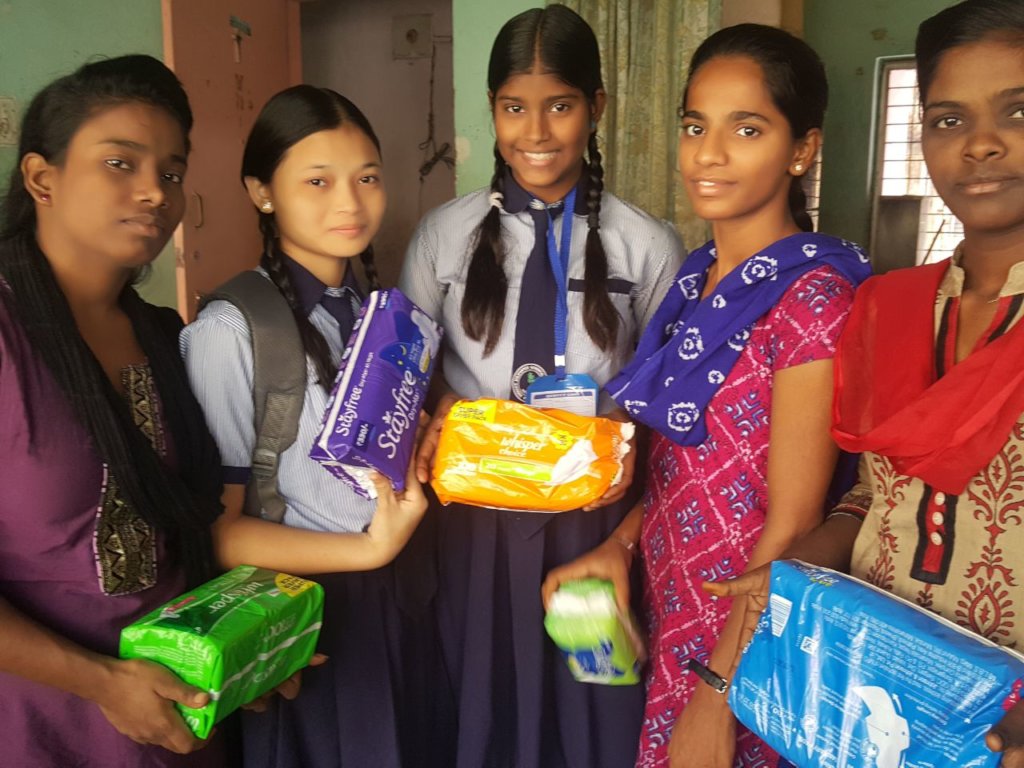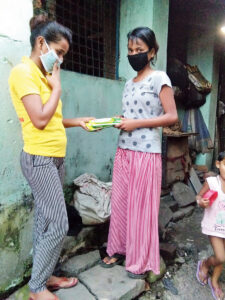Stain of period poverty in India

Out of 336 million women of reproductive age in India, only about 121 million (roughly 36 pc) use basic sanitary napkins
“Now we have no option but to use old, dirty clothes and rags during periods. When our school was open, we were given a packet of sanitary pads every month. We cannot afford to buy a packet on our own. It is very expensive,” says 16-year-old Ayesha Khanum, a resident of Lalita Park slum at Laxmi Nagar, in east Delhi. Khanum has a family of five including her parents and two older sisters, all of whom live in a single room.
Khanum’s mother, a 44-year-old housewife, says the family cannot afford to buy sanitary pads for all their girls. She also adds that her father, a labourer, had lost his job during the lockdown and they barely had enough to eat for six months. “I have a household to run and I have to feed five people. Earlier, they used to go to school and we did not have to worry about these things. Now, since the onset of the pandemic, if my husband manages to earn some money these days, we use that to buy rice and other important essentials rather than sanitary pads,” she explains.
Khanun, her sisters and her mother are but only four of the 215 million women of the reproductive age group in India who lack the basics during their menstruation.
Lockdown worsened period poverty
According to Census 2011 population data, about 336 million women in India are of reproductive age and menstruate. National Family Health Survey 2015-2016 estimates that of the 336 million, only about 121 million (roughly 36 pc) women use sanitary napkins, locally or commercially produced. Rest depend on extremely unhygienic and risky practices of using ashes, dirty rags, leaves, tattered clothes or even old paper.
The Covid-19 pandemic has triggered what has been described as a ‘sanitary pad crisis’ in India. Priya, a 14-year-old schoolgirl, considers herself lucky that her parents can still afford pads. “But several of my friends have to go without. They feel shy asking their parents for pads when they see them struggling to organise two square meals every day,” she says.
A survey, conducted by the Menstrual Health Alliance India (MHAI), has also found that 84 pc women who responded said there was either a lack of or severely restricted access to menstrual products in communities that they work in, especially for sanitary pads, taking the already concerning figures to a new low.
Schools and colleges are a critical part of the supply chain, providing a pack of pads to girls each month. With them closed, along with other supply chain issues put an immediate stop to the monthly supply of pads that millions of adolescent girls received via their schools. “As few as 15 pc of girls had access to sanitary pads during the lockdown,” Shazia Ahmad, a Delhi-based social worker tells Media India Group.
Pads were reclassified as essential items eligible for supply chain operations on March 30 but even now supplies have not resumed to normal levels in many places, says Ahmad, who is currently working with Safa India, an NGO that is busy teaching women how to make cloth pads at home.
Associated health risks
“What we go through every month is not just feeling shame, physical pain the struggle to keep ‘it’ hidden from everyone else but also the hazardous health risks that come with it, in absence of menstrual products,” says Anuradha, an 18-year-old resident of the same place. Anuradha speaks of learning about safe menstrual practices and maintenance of hygiene in her school. She says that she is aware of the health risks she is inviting by using old newspaper and her mother’s torn sarees during her menstruation but she has no other way out.
Anuradha’s words echo true with what gynaecologists and health experts say. “If a woman does not have access to menstrual hygiene products, it can increase her chances of contracting diseases like cervical cancer, reproductive tract infections, hepatitis B infection, various types of yeast infections and urinary tract infections, to name a few,” says Dr Shanti Narayan, a gynaecologist at a private hospital in New Delhi.
Narayan further explains that not only lack of proper menstrual products but also a lack of clean places like bathrooms and toilets while menstruating also causes similar health issues. “At least 70 pc of all reproductive diseases in women were zeroed in on poor menstrual hygiene, leading to 40,000 cervical cancer deaths every year,” she adds.
“Food, not pads”
When Aqsa Mushtaque, 25, a relationship manager in a private company in Kolkata, got a call from her maid saying she did not have money to buy sanitary pads for her daughter, she went out and ended up distributing scores of them in slum areas.
“The women in the house do not get any pocket money. And they don’t like telling their husbands about their periods or pads and they find it much easier to use cloth,” she says.
Gautami Gade, 26, a mother of two who works as a house-help in Lajpat Nagar, says she had stopped using cloth during her periods for six years until the lockdown forced her to start saving extra. “I had no work to do. I was asked not to come till the lockdown continued and I was not paid any money either. So, I had to cut down on expenses and I stopped buying sanitary pads,” she says.
“When the choice is between having a meal and buying pads, I will choose the former. I have started using cloth again. If we have INR 30 extra at home, I would spend it on food, not pads,” she adds.
Long way to reach pre-pandemic levels
Campaigners for safe menstrual practices say that a combination of government’s actions and inactions has pushed a lack of menstrual hygiene to alarming levels for poor women. “I do not understand how they forgot that menstruation does not stop during a pandemic. Millions of families have been pushed into severe economic crisis and supply chains have been broken. Amid all this, menstrual facilities among women have suffered the most and have never been addressed properly since then. Poor women had come a very long way but suddenly, they are back to rags and ashes again,” says Ahmad of Safa India.
Acknowledging menstruation alone does not help, she adds. “Menstrual hygiene being one of the most important fundamental human rights, requires immediate attention and action across the nation and yes this cannot wait,” she says.
Despite the grim situation currently, Ahmad goes on to say that the young girls in the slum are aware of health risks and are not shying away from talking about menstruation, unlike the grown-ups, that itself is a very small but important step towards eliminating the taboo around menstruation and reducing period poverty.










